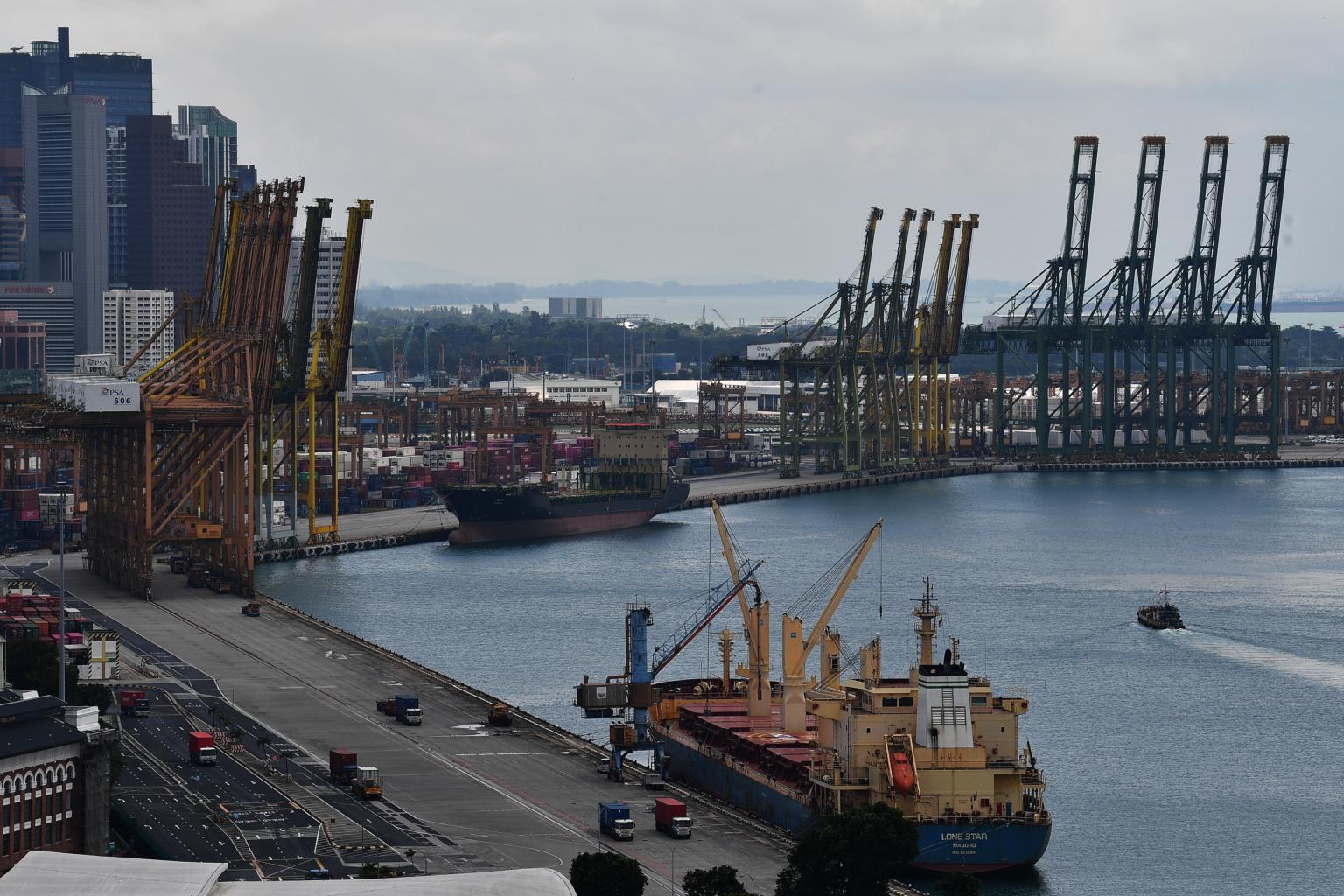Singapore and Zhejiang to step up work in areas like trade, urban solutions
Sign up now: Get ST's newsletters delivered to your inbox

Bilateral trade between Singapore and Zhejiang hit US$4.41 billion (S$5.9 billion) in the January to September period.
ST PHOTO: LIM YAOHUI
Follow topic:
SINGAPORE - Collaboration between Singapore and Zhejiang in eastern China will be stepped up in areas like trade and connectivity, innovation and sustainable urban management, Enterprise Singapore (ESG) said on Tuesday (Dec 22).
"Zhejiang's 'Future Communities' initiative and integration with the wider Yangtze River Delta region also present opportunities for Singapore companies in urban planning and environmental services," ESG added.
This refers to the coastal province's initiative to develop model future communities that are more people-oriented, environmentally friendly and digitalised.
Seven commercial memorandums of understanding in areas such as urban governance, water technology and environmental protection were also signed at a virtual meeting co-chaired by Senior Minister of State for Communications and Information Sim Ann and Zhejiang Vice-Governor Zhu Congjiu.
Bilateral trade between Singapore and Zhejiang, which has the fourth highest gross domestic product among China's 31 provinces, hit US$4.41 billion (S$5.9 billion) in the January to September period, up 18 per cent from a year earlier.
In 2019, trade increased 5.8 per cent to US$5.2 billion, compared with US$4.91 billion in 2018.
Cumulative actual investments from Singapore to Zhejiang amounted to US$7.39 billion in the first nine months of this year, with 1,422 projects, up from the around 1,360 projects amounting to US$6.63 billion as at December last year.
So far, 262 Zhejiang companies have invested in Singapore, with their cumulative actual investments hitting US$3.41 billion.
Ms Sim, who is also Senior Minister of State for National Development, said the pandemic has shown that cooperation between Singapore and Zhejiang is strong and resilient.
She added that the three areas that the two territories are working on - trade and connectivity, innovation and sustainable urban management - "are not only 'pandemic-proof' but are also areas which will help power the future growth of Singapore and Zhejiang".
Zhejiang expanded its free trade zone by a further 119.5km to include its provincial capital, Hangzhou, and cities Ningbo and Yiwu in September.
"With its aspirations to be a new international trading centre and international shipping logistics hub, the expanded free trade zone presents opportunities for more Singapore companies in trade, transport and logistics," ESG said.
One example is international trade consulting Global eTrade Services, which is working with Zhejiang ePort and Ningbo International Logistics Development to connect small commodity suppliers in Zhejiang to South-east Asia.
Separately, the Monetary Authority of Singapore has followed up on the 16th Joint Council for Bilateral Cooperation between Singapore and China held earlier this month.
The central bank and the China Securities Regulatory Commission had a video call on Tuesday, with key areas of discussion, including the impact of Covid-19 on capital markets and how to manage financial, operational and technology risks during the pandemic.

